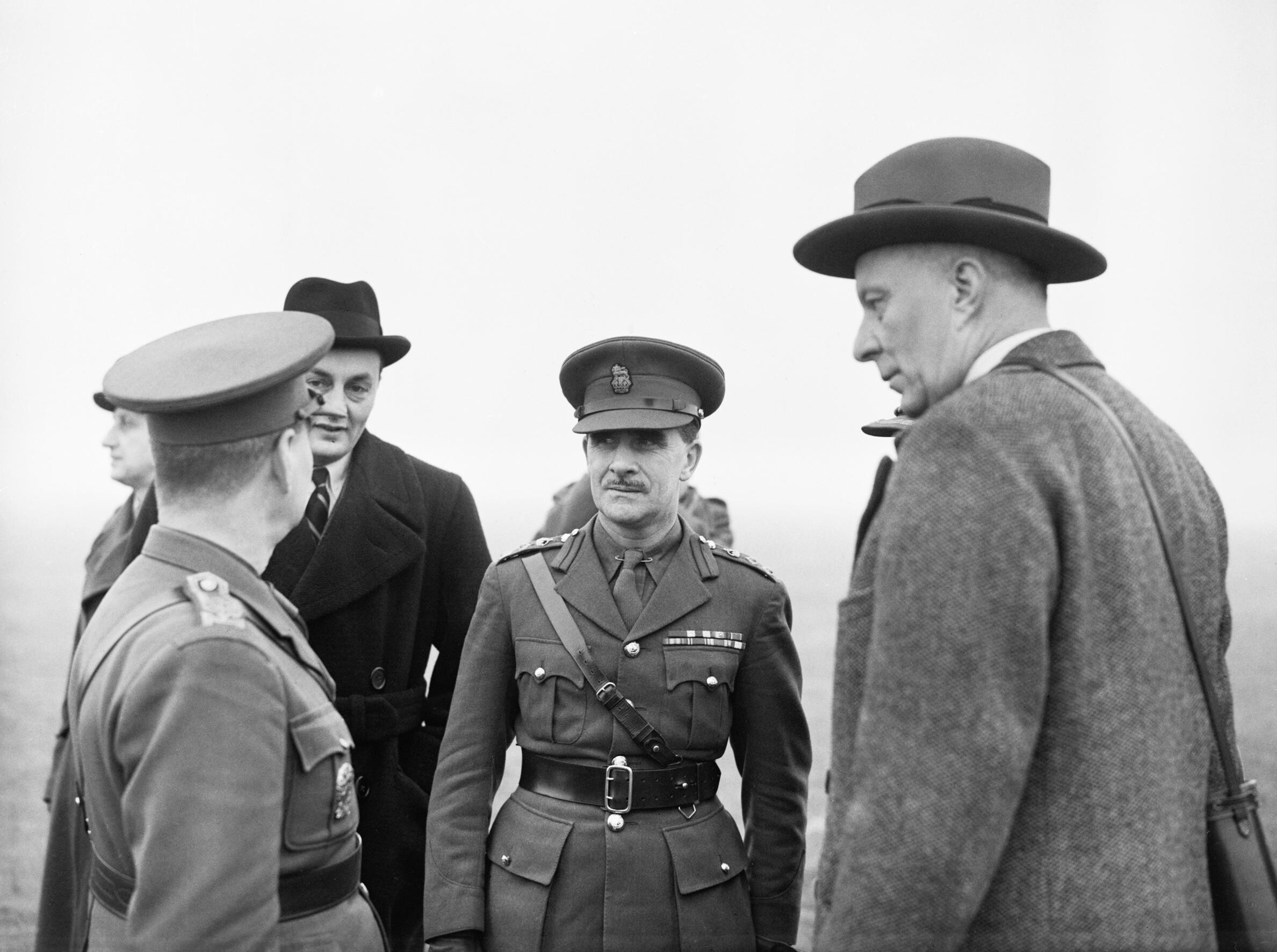Hugh Dalton (right), Minister of Economic Warfare, and Colin Gubbins (center), chief of the Special Operations Executive, talking to a Czech officer during a visit to Czech troops near Leamington Spa, Warwickshire. Photo: Taylor (Lt), War Office official photographer. War Office Second World War Official Collection. Imperial War Museum.
Major-General Sir Colin Gubbins was the head of the Special Operations Executive (SOE) during World War II, a secret organization that carried out covert operations behind enemy lines. He was born in 1896 in Japan, where his father was a diplomat. He was educated at Cheltenham College and at the Royal Military Academy, Woolwich.
He joined the Royal Field Artillery in 1914 and fought in France and Italy during World War I. He was wounded twice and awarded the Military Cross (MC) for his bravery. After the war, he studied at the Staff College and served in various posts in India, Ireland and Palestine. He became interested in guerrilla warfare and learned from the Irish Republican Army and the Arab Revolt. He also wrote a manual on partisan warfare, which was later used by the SOE.
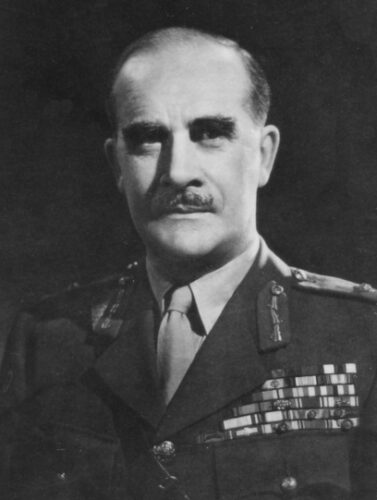
He married Norah Creina in 1919 and had two sons with her. The elder son, Michael, followed his father’s footsteps and joined the SOE, but was killed at Anzio in 1944. Gubbins divorced his first wife in 1944 and married Anna Elise Tradin, a Norwegian-born woman, in 1950.
In November 1940, Gubbins became acting Brigadier, and at the request of Hugh Dalton, the Minister of Economic Warfare, he was appointed as the director of operations and training of the SOE, which had been created by Winston Churchill to “set Europe ablaze” with sabotage and subversion. He was responsible for overseeing the recruitment, training and deployment of thousands of agents who performed sabotage, espionage and resistance activities in occupied Europe and Asia. He was appointed director of the SOE in September 1943.
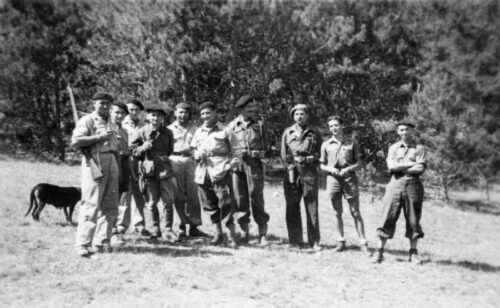
The SOE was a secret British organization that was formed in 1940 to conduct espionage, sabotage, and reconnaissance in occupied Europe and Asia against the Axis powers. It also supported local resistance movements and trained agents for covert operations. The SOE was also known as the “Baker Street Irregulars”, and the “Ministry of Ungentlemanly Warfare”. It got the name Baker Street Irregulars due to the fact that its headquarters were at 64 Baker Street. It employed or controlled more than 13,000 people, including about 3,200 women. It was dissolved in 1946 after the end of the war.
Gubbins personally selected some of the most famous SOE agents, such as Violette Szabo, Odette Sansom, Nancy Wake and Noor Inayat Khan. He also established close contacts with resistance groups in various countries, such as the French Maquis, the Polish Home Army and the Yugoslav Partisans. He was involved in planning and supporting several daring missions, such as the destruction of the heavy water production facility at Vemork hydroelectric power plant in Norway in Operation Gunnerside, which prevented the Nazis from developing an atomic bomb; and the assassination of Reinhard Heydrich in Operation Anthropoid, the brutal Nazi governor of Bohemia and Moravia, who was known as “the Butcher of Prague”.
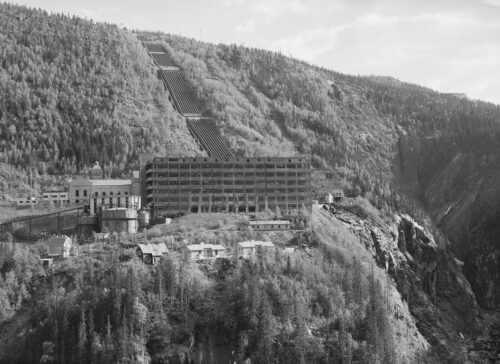
SOE was also involved in the escape of prisoners of war from Colditz Castle, a high-security prison for Allied officers that was regarded as escape proof. The SOE provided the POWs with maps, tools, radios, and forged documents to aid their escape attempts. The SOE also coordinated with the local resistance groups to arrange safe houses and transportation for the escapees. Some of the most famous escapes from Colditz Castle involved SOE agents or assistance, such as the French officer Pat Reid, the Dutch officer Anthony Luteyn, and the British officer Airey Neave.

A Visionary Leader
Gubbins was a visionary leader who recognized the importance of unconventional warfare and the potential of irregular forces. He faced many challenges and controversies, such as the rivalry with other intelligence agencies, such as MI5 (Security Service) and MI6 (Secret Intelligence Service or SIS), who often mistrusted or obstructed his work; the lack of resources and support from the government, who sometimes questioned his methods and results; and the ethical dilemmas of waging a ruthless war. He was awarded several honors for his service, including Knight Commander of the Order of St Michael and St George (KCMG), the Distinguished Service Order (DSO), Military Cross (MC) from the United Kingdom, and the Legion of Merit from the United States. He retired from the military in 1946 and became a director of several companies. He died in 1976 at the age of 79.
Gubbins helped shape the history of World War II and the post-war world by weakening the Nazi regime, strengthening the Allied cause and inspiring the liberation movements in many countries. He also contributed to the development of modern special forces and intelligence services, such as the SAS, the CIA and the Mossad. He is widely regarded as one of the most influential figures in the field of covert warfare and a hero of the resistance. As Winston Churchill said of him: “He was a man of great courage and resource, who did much to make victory possible.”
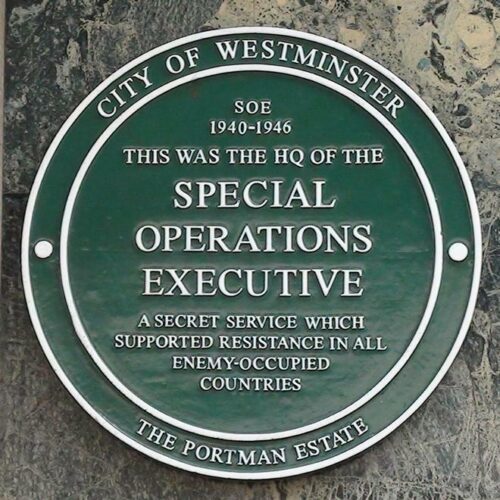
*The views and opinions expressed on this website are solely those of the original authors and contributors. These views and opinions do not necessarily represent those of Spotter Up Magazine, the administrative staff, and/or any/all contributors to this site.

